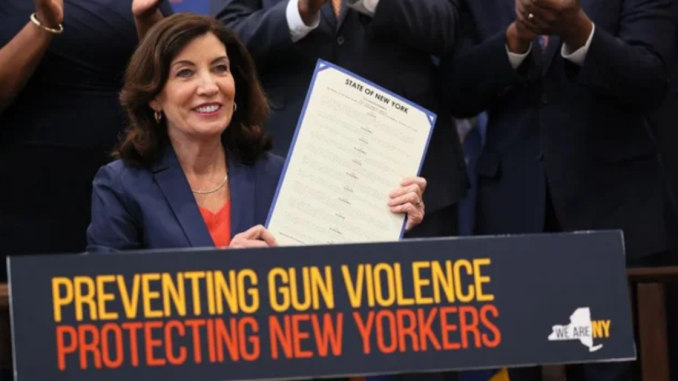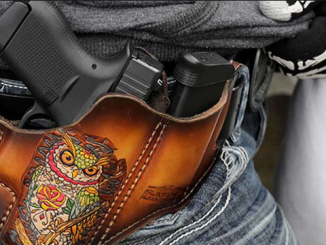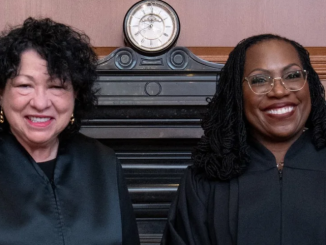
When New York’s new gun control law takes effect this September, applicants seeking a concealed carry permit will be required to turn over lists of their social media accounts to authorities as part of their permit application. It’s a requirement that critics say is both unfunded and difficult to enforce.
Beginning Sept. 1, New York gun owners seeking a concealed weapons permit will be required to submit information on all their active and inactive social media accounts from the past three years for a review of their “character and conduct,” according to the Associated Press. They’ll also need to take safety training courses, provide four character references, and sit through in-person interviews as part of the application process.
Anyone seeking a concealed carry permit will be required to show that they have “the essential character, temperament and judgement necessary to be entrusted with a weapon and to use it only in a manner that does not endanger oneself or others,” the law says.
These are restrictions New York adopted after the U.S. Supreme Court ruled that the Second Amendment guarantees the right of Americans to carry weapons for personal protection. Democrats and anti-gun activists support the requirements, arguing a social media review can help screen for mentally disturbed individuals who may harm themselves or others if they have access to firearms.
They point to the recent mass shootings in Uvalde, Texas, where the gunman made several disturbing social media posts before murdering 19 children and two adults in an elementary school, and in Highland Park, Illinois, where a young man had uploaded violent imagery to his social media profiles before shooting up a Fourth of July parade.
But gun rights activists have criticized the measures, which they say infringe on privacy and free speech rights, let alone gun rights.
“This is the kind of bill that the Gestapo would be proud of. This is the kind of bill you’d see in communist China,” the New York State Firearms Association’s Aaron Dorr said last week after Democrats introduced the bill. “This will never survive a court challenge. This is the kind of concept that would pass in those countries.”
Aside from the constitutional concerns, there are practical concerns over how New York’s law will be enforced. Local sheriffs’ offices, judges, and county clerks are tasked with reviewing an applicant’s social media profiles for evidence of dangerous behavior.
But Peter Kehoe, the executive director of the New York Sheriffs’ Association, told the Associated Press that New York sheriffs’ departments haven’t received additional funding from the state or personnel resources to conduct those reviews. Kehoe said the law infringes on gun rights and that local officials are unlikely to spend time reviewing social media accounts.
“I don’t think we would do that,” Kehoe said. “I think it would be a [un]constitutional invasion of privacy.”
Legal experts have also raised concerns about how officials are supposed to interpret social media posts.
“Where this will get tricky is to what extent this is expression and to what extent is this evidence of wrongdoing?” said James Densley, a criminal justice professor at Metro State University.
Adam Scott Wandt, a public policy professor at the John Jay College of Criminal Justice, told the AP that the New York law appears rushed and vague, and could set bad precedents for mandatory social media disclosures for other types of licenses.
“I think that what we might have done as a state here in New York is, we may have confirmed their worst fears — that a slippery slope will be created that will slowly reduce their rights to carry guns and allow a bureaucracy to decide, based on unclear criteria, who can have a gun and who cannot,” Wandt said. “Which is exactly what the Supreme Court was trying to avoid.”
* Article from: The Blaze

